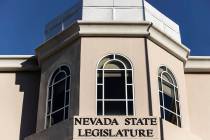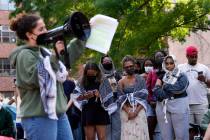Selective litigation
The case in front of the U.S. Supreme Court this week could have been called Everyone v. Everyone.
That's largely how U.S. Solicitor General Neal Katyal described American Electric Power Co. v. Connecticut, in which six states, the city of New York and three conservation groups are suing four of the nation's largest private electric power companies and the federal Tennessee Valley Authority, seeking to force an abatement of greenhouse gas emissions in order to curb global warming.
Mr. Katyal noted the case literally involves the whole world, in which "everyone is a potential perpetrator, everyone is a potential victim."
Questions from the bench seemed to indicate none of the justices could suggest how a single judge might make a proper decision in such a complex, all-encompassing, overreaching case -- one in which the suing states could never be assured of a remedy: actually stopping global warming.
The absurdity of the litigation was raised several times by the customarily argumentative Justice Antonin Scalia. At one point, he asked rhetorically, "You acknowledge that ... the remedy here cannot possibly stop global warming, right?"
After the states' attorney admitted the five power companies combined emit only a tiny percentage of the world's greenhouse gases, Justice Scalia launched into a series of comparisons to illustrate the ludicrous nature of the selective litigation.
"You're -- you're lumping them all together. Suppose you lump together all the cows in the country," Justice Scalia suggested. "Would -- would that allow you to sue all those farmers? I mean, don't you have to do it defendant by defendant? ... Cow by cow, or at least farm by farm?"
The utilities' lawyer, Peter D. Keisler, strongly summed up their argument at closing: "To classify climate change as a tort would trigger a massive shift of institutional authority away from the politically accountable branches and to the courts, which we think would be inconsistent with separation of powers, and for those reasons we ask that the court reverse the judgment and direct that the case be dismissed."
Article III of the Constitution lists the powers of the judiciary, and they don't include legislative or executive powers.























